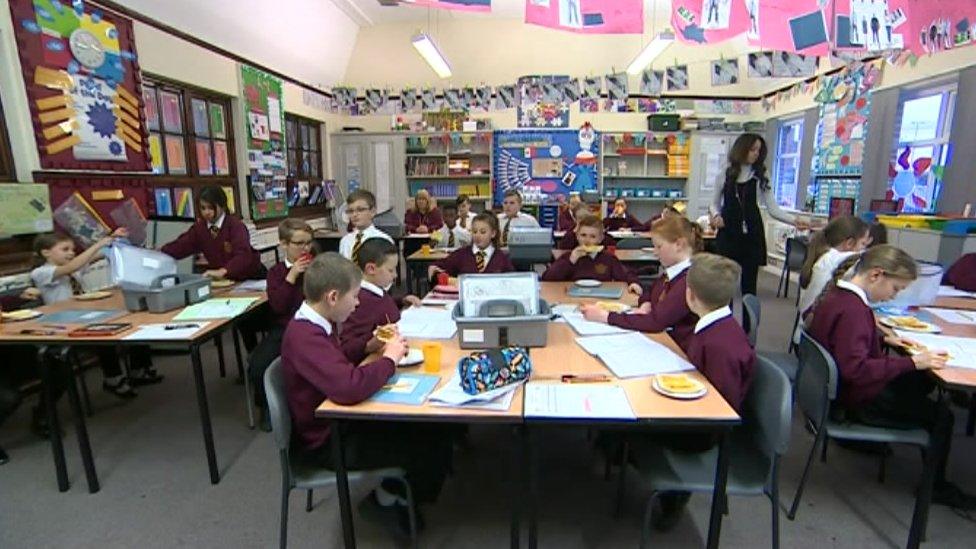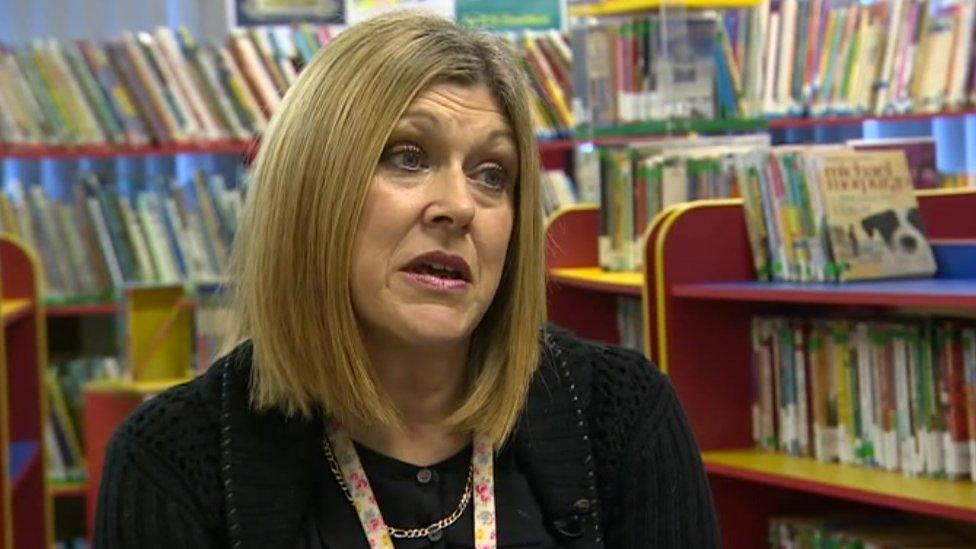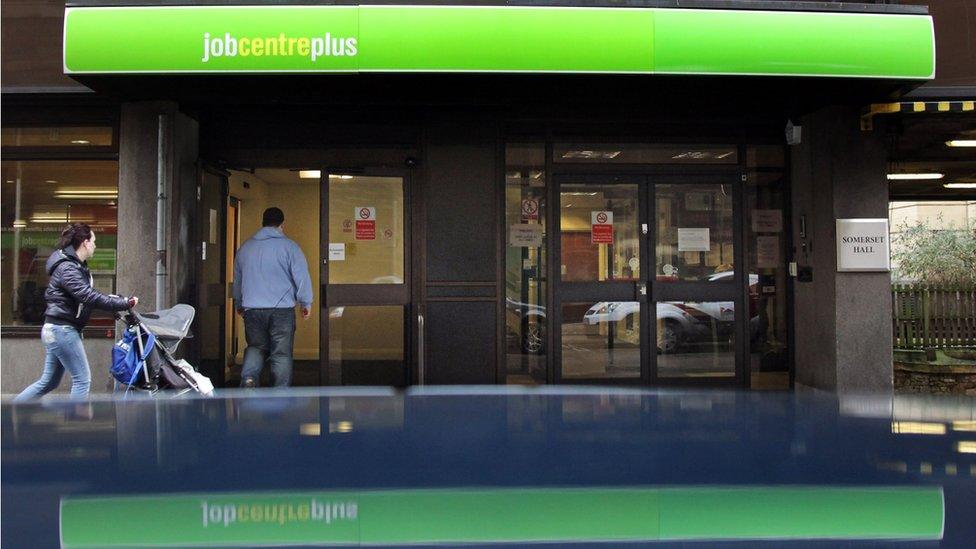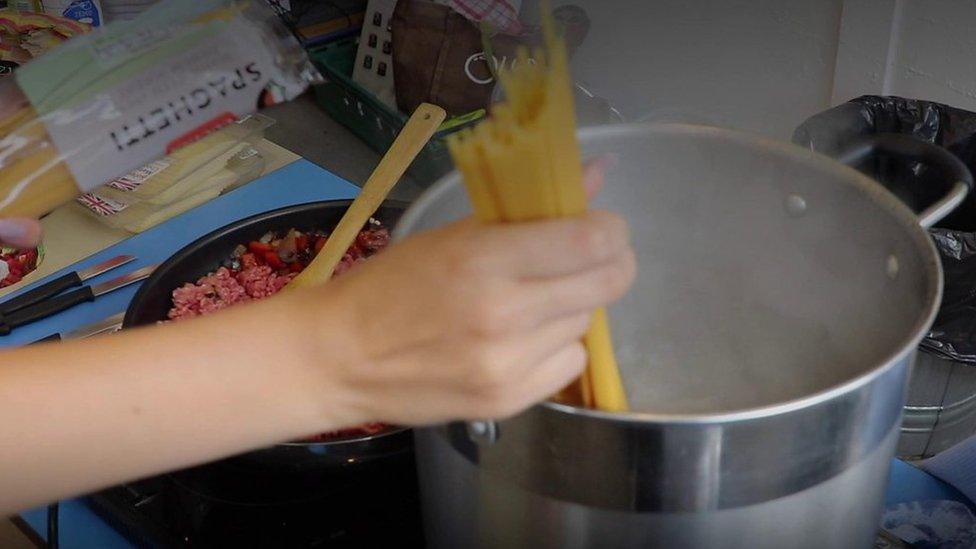Great Yarmouth school sets up food bank to help families
- Published

The school provides breakfast for many children and roughly half the pupils have free school meals
A school has set up a food bank to help pupils and their families who have run out of money and cannot afford to eat.
North Denes Primary in Great Yarmouth has started collecting food donations to distribute to families.
Head teacher Debbie Whiting said she decided to act when some children were "too hungry to learn" after universal credit delays left their families struggling.
The government said 100% universal credit advances were available.
Under universal credit rules, external one calendar month is taken for assessment and then it can take seven days for money to arrive in an account.
Parent Sadie Carter, who has two children at the school, said when she ran out of money she was "at rock bottom and crying for days".
"I didn't know what to do. Then the school came to help," she said.
"There was no gas or electricity and my kids would have been freezing at the worst possible time of the year."

Head teacher Debbie Whiting said some families were working "and still struggle to make ends meet"
The school food bank, set up for parents whose children are in need, has distributed 30 food parcels since it opened five weeks ago.
Ms Whiting said she was alerted to the problem by a hungry child who asked for help for her mother who had no food.
"The roll-out of universal credit in Great Yarmouth means some families go for five weeks without any money and some are just above the level where they can get help," she said.
"Some families are working and still struggle to make ends meet."
A Department for Work and Pensions spokesman said: "The reasons for food poverty are complex but with universal credit we have made 100% advances available from day one.
"We have also announced a partnership with Citizens Advice to help people make their benefit claims."

What is universal credit?

Universal credit is a benefit for working-age people.
It replaces six benefits - income support, income-based jobseeker's allowance, income-related employment and support allowance, housing benefit, child tax credit and working tax credit - and merges them into one payment.
It was designed to make claiming benefits simpler.
A single universal credit payment is paid directly into claimants' bank accounts to cover the benefits for which they are eligible.
Claimants then have to pay costs such as rent out of their universal credit payment (though there is a provision for people who are in rent arrears or have difficulty managing their money to have their rent paid directly to their landlord).
- Published5 August 2018

- Published3 August 2018

- Published8 April 2016
